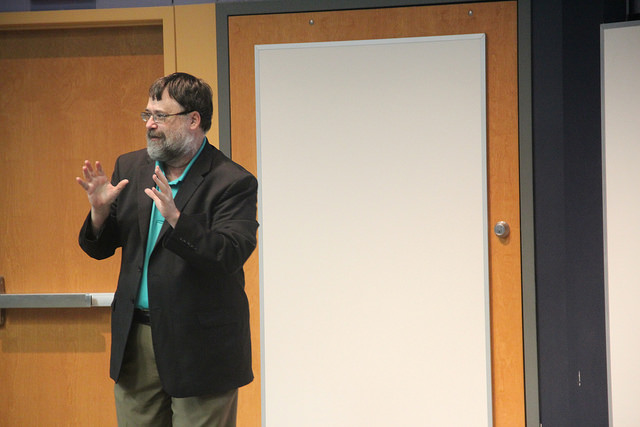Posted on Friday, April 8, 2016
 “I am not in danger; I am the danger,” said Walter White, the main protagonist played by Bryan Cranston in season four, episode six of “Breaking Bad,” a widely-watched television show.
“I am not in danger; I am the danger,” said Walter White, the main protagonist played by Bryan Cranston in season four, episode six of “Breaking Bad,” a widely-watched television show.
Taking a deeper look at the hot commodity that took the world by storm, Dr. James Rhoads, professor of political science, and his co-authors, began their research with the question: “Why are viewers so obsessed with this show?”
In his publication, "Falling Hard for Breaking Bad: An Investigation of Audience Response to a Popular Television Series,” he explores this question. Rhoads studied what characteristics create a show as compelling as “Breaking Bad” to be so popular. The authors of the study were interested in what viewers found so appealing about the series.
Rhoads and his co-authors used Q Methodology to study subjective viewpoints, which puts primacy on the views of the respondents made through a rank-ordering technique known as “q-sort.” Respondents who were dedicated fans of the show were asked to rank-order a set of opinion statements about a particular topic, in this case, their view of the television series.
“I have had an interest in popular culture and its intersection with politics for some time now,” said Rhoads. “I regularly teach courses in the connection between aspects of popular culture and politics, including The Politics of Rock & Roll and Political Films. Additionally, I introduce Q Methodology to students, many of whom choose to use Q in their capstone research.”
Rhoads’ investigation uncovered three basic orientations among viewers to the series. Following his interpretation, a concluding discussion underscores the significance of these findings methodologically and for the larger context of contemporary American life.
The first group sees “Breaking Bad” as a morality play as viewers find the show to be a vehicle to reflect upon the flawed nature of humanity. The second group of “Breaking Bad” viewers are “character identifiers,” as they appreciate trying to place themselves in the predicaments the characters faced each week. Finally, a third group viewed the show much like a critic would; seeing the show as good entertainment, but critical of the hype that enveloped the show.
For more information about this research, contact Rhoads at jrhoads@westminster.edu or (724) 946-7255.